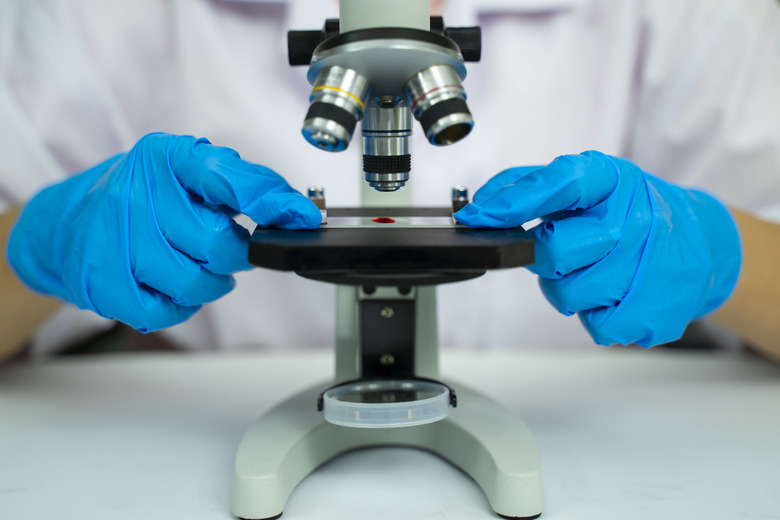What Are The Two Prokaryotic Kingdoms?
The two prokaryotic kingdoms are Eubacteria and Archaea. A prokaryote is a relatively simple single-celled organism; more complex organisms (including all multi-celled organisms) are eukaryotes. Previously, there had been only one kingdom of prokaryotes, known as Monera. However, as scientists discovered new and more bizarre forms of life, a new kingdom had to be created.
Prokaryote Characteristics
Prokaryote Characteristics
In comparison to eukaryotes, prokaryotes are relatively simple, single-celled organisms. Prokaryotes only have a fraction of the amount of DNA as eukaryotes, and they lack more complex organelles such as mitochondria. Importantly, a prokaryote's DNA is not contained in a nucleus (which is the main distinction between prokaryotes and eukaryotes), but is instead free-floating in the cell. Prokaryotes can engage in either sexual or asexual reproduction, and some have chloroplast organelles, which allow them to make their own food through the process of photosynthesis.
Eubacteria
Eubacteria
The Eubacteria Kingdom is the prokaryotic kingdom that has been known for more than a hundred years, primarily because these are the bacteria that cause disease in human beings (also known as a pathogen). There are thousands of known species of eubacteria, though they are generally subdivided by their shapes: rod, spiral and spherical. Eubacteria are important to the global ecosystem because they break down dead organic material into nitrogen, which is then returned to the atmosphere and used to fertilize plants.
Archaea
Archaea
The Archaea Kingdom is a relatively new prokaryotic kingdom, and its organisms differ from the eubacteria because of the environment in which they live. Archaea differ from almost all other forms of life because they can survive in extreme environments, such as at the bottom of sea vents or in acidic water. Like eubacteria, there is a large variety of Archaea species, with some possessing abilities not found in any other organisms, such as the Halobacterium, which uses salt water to power a proton pump that gives it energy.
Viruses
Viruses
Despite their similarities to eubacteria and Archaea, viruses are not considered prokaryotic organisms, and thus they do not have their own kingdom. While they do have genetic information encoded in DNA like prokaryotes, viruses do not possess any other organelles, nor do they behave like prokaryotes. Viruses must latch on to the cells of other organisms in order to reproduce; this lack of an independent means of reproduction is an important reason why viruses are not classified as an organism.
Cite This Article
MLA
Lichtenstein, Drew. "What Are The Two Prokaryotic Kingdoms?" sciencing.com, https://www.sciencing.com/two-prokaryotic-kingdoms-8491744/. 26 May 2011.
APA
Lichtenstein, Drew. (2011, May 26). What Are The Two Prokaryotic Kingdoms?. sciencing.com. Retrieved from https://www.sciencing.com/two-prokaryotic-kingdoms-8491744/
Chicago
Lichtenstein, Drew. What Are The Two Prokaryotic Kingdoms? last modified March 24, 2022. https://www.sciencing.com/two-prokaryotic-kingdoms-8491744/
